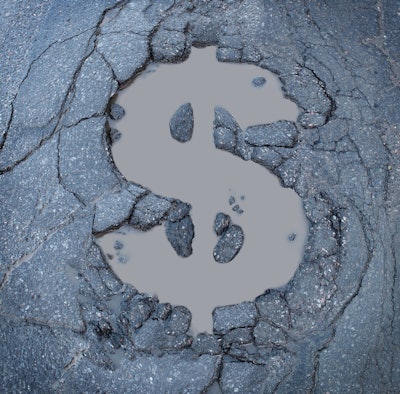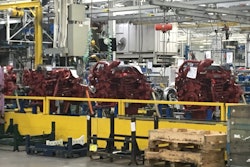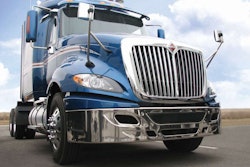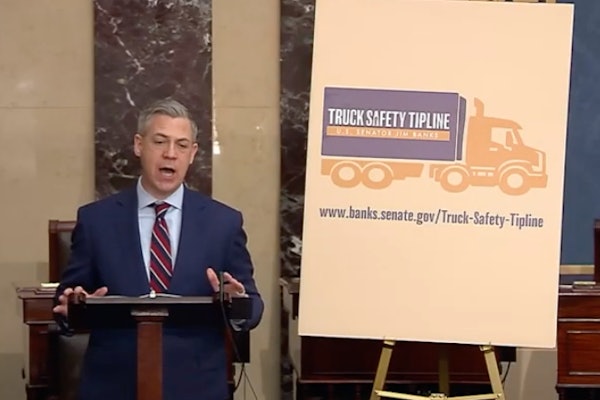 ATA says its infrastructure funding proposal would generate $340 billion in the next 10 years to fund America’s bridges and highways.
ATA says its infrastructure funding proposal would generate $340 billion in the next 10 years to fund America’s bridges and highways.The American Trucking Associations today announced the launch of a new infrastructure advocacy campaign that will target members of Congress in Washington and key districts across the country to address the immediate need for long-term infrastructure funding to repair America’s crumbling roads and bridges.
Chris Spear, ATA president and CEO, said the first phase of the six-figure, eight-week campaign will start today with a digital ad campaign and 60-second television commercial (see video below) that will run in D.C. television markets as well as national Sunday shows, as well as the launch of the microsite RoadtoaBetterFuture.com.
The commercial highlights the human toll of highway congestion, and Spear said the average American spends 42 hours annually sitting in traffic, resulting in $1,600 in wasted gas during long commute times and damage to vehicles as a result of poor roads. Spear added that trucks make up only 4 percent of all vehicles on the road, but the trucking industry loses $74.5 billion per year due to congestion and damage from poor roads, both factors that contribute to emissions and higher prices for consumer goods.
“2019 is a key year for infrastructure funding as the Highway Trust Fund is going broke in the next year and a half,” said Spear. ATA is advocating a 5-cent fuel tax increase per year over the next four years that would generate an estimated $340 billion in new revenue and shore up the ailing Highway Trust Fund. “We believe this is a very sensible approach that addresses immediate infrastructure needs, shores up Highway Trust Fund and doesn’t add a dime to the deficit.”
The second phase of the campaign will target congressional districts of members of the House Ways & Means and Transportation & Infrastructure Committees as well as major congestion bottleneck regions including Atlanta, New Jersey and Houston. ATA also will host events in those areas with commercial drivers, ATA carrier members and state organizations.
“This is the right thing to do for the country,” said Spear. “As an industry that pays half the tab into the Highway Trust Fund, it is our responsibility to lead and help pave the way to get this bill done.”
After testifying at three hearings on Capitol Hill, Spear is optimistic that infrastructure legislation will take shape in the next six to eight weeks and will garner bipartisan support. “There is no daylight between business and labor on this issue,” said Spear. “That is very unusual in a town that is very divided. We are optimistic that this effort will resonate well with both Democrats and Republicans. If the White House, House and Senate can do what is right for country, we’ll see an infrastructure bill pass into law later this year.”
In the absence of meaningful federal infrastructure funding, Spear said 23 states have raised fuel taxes, but the money generated is “a fraction of what they need,” especially in rural states that don’t have the capacity to raise enough revenue or the administration to oversee it.
“It comes down to U.S. Department of Transportation and Congress to help states have a real plan so that our economy grows as one and not as 50 siloed economies,” said Spear. “Interstate connectivity is absolutely critical. Otherwise state efforts will fall short of what is needed to raise the money. We need the federal government to step in and help them out.”
Spear said the immediate ability of ATA’s plan is a major advantage to alternative infrastructure funding proposals such as a vehicle miles traveled tax that are “simply not ready for prime time,” he said. “That technology is 10 years from full deployment and raises issues on cyber security and privacy. People are edgy about the government tracking where their vehicle goes. We believe gas tax is most immediate way to fund infrastructure over the next 10 years.”












